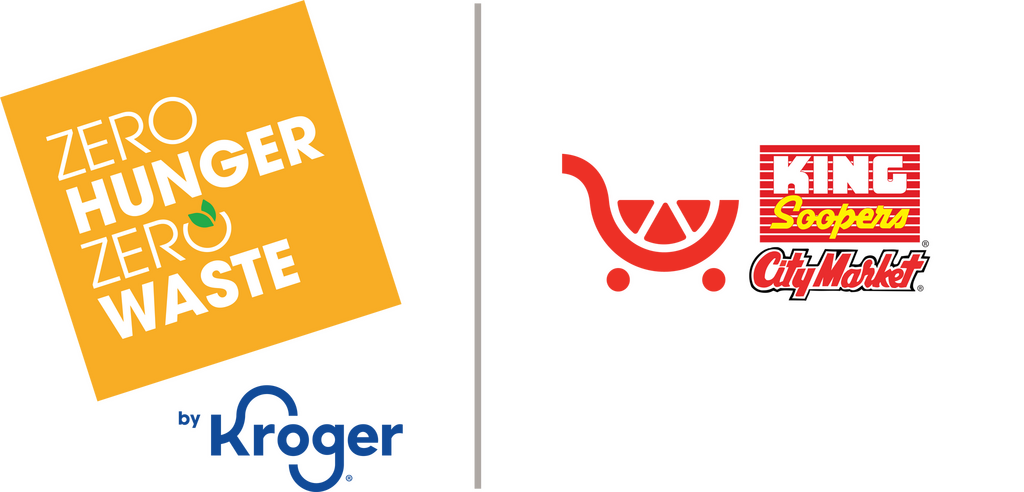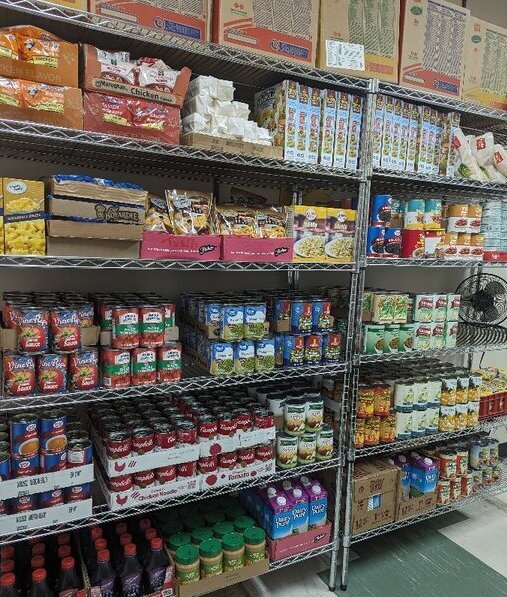Westminster Presbyterian Church FISH Food Bank strives to meet both the physical and emotional needs of their community through inclusive hunger relief programs. King Soopers has supported this organization through the Fight Hunger bag program.
Tell us about Westminster Presbyterian Church FISH Food Bank.
The church itself is the oldest church in Westminster. It was founded in 1892 by a group of Presbyterians who wanted to build the Princeton of the West. In the 50s and 60s, people began to move here, and other churches started coming in. In 1970, a bunch of the churches got together to meet the needs of the community. They set up a group called FISH of Westminster. In the mid-1990s, many people were struggling with food insecurity, so the group established multiple food pantries to help. Of those four pantries, we are the only one still operating.
There are all kinds of community needs out there, but the one my church really tapped into was food insecurity. It’s immediate. It’s not focused on solving economic issues or on job retraining. It’s focused on filling bellies. That’s our mission.
The idea is to help your hometown, help your neighbors, and support your community.
A lot of our volunteers are Christians, but we’ve never required that you be a member of the church to volunteer. We actively recruit anyone in the community who wants to help, which has changed how our organization sits in the community. We are much more visible and get much more outside support. The organization has evolved to truly be community-based. The idea is to help your hometown, help your neighbors, and support your community.
What services do you provide to the community?
We are one of two food pantries in Westminster that are open regularly. We’re open four days a week for three afternoons and one evening. We are also the only evening pantry in the area. We make sure to have one open evening each week because we have a lot of clients working two jobs. Since we’re not the only pantry in the area, we also make sure clients know where the other pantries are.
Before the pandemic, we started doing more initiatives for the unhoused. We offer bags with food and hygiene products suited for someone who may be sleeping rough. We try to give ten meals through each kit, specifically items they can carry in a backpack that don’t require reheating. We also want to be considerate of the fact that many unhoused individuals may be missing teeth and might need softer foods. Assuming they don’t have access to clean water, we provide water bottles. We also include baby wipes, Advil, lotion, deodorant, toothpaste, and toothbrushes.

As a church, we host free dinners for anyone in the neighborhood twice a month. Last year, we added a Thanksgiving lunch funded by the FISH Food Bank. We decided to provide a Thanksgiving meal because there’s a lot of emotion attached to food insecurity. This way, you get a nice warm meal in a nice warm place. We partnered with multiple churches to do this. Together, we were able to serve ham, turkey, and potatoes. Fortunately, a couple of the churches spoke Spanish, so we were also able to communicate with everybody who came.
What sets Westminster Presbyterian Church FISH Food Bank apart from other hunger organizations in your community?
Our homeless initiative is what sets us apart. A lot of pantries just started focusing on this now that homelessness is becoming much more visible in our area. From 2022 to 2023, the number of homeless individuals in our town doubled from 120 to 240. As this number is increasing, we are more intentional about addressing homelessness.
We have brought in an extraordinary number of partners in the last few years. For example, when we started doing the homeless kits, the Westminster Stake of the Church of Latter-Day Saints donated the food, and we focused on hygiene products. For the Thanksgiving meal, the regional Jewish congregation who worships at our church partnered with us. We also partnered with a church of about 200 members who worship in the college library. The city even uses us for a lot of their homeless support activities, specifically in libraries. We are also getting more corporate partnerships, like the partnership we have had with King Soopers for almost 20 years.
Ten years ago, we were a smaller organization, serving 450 clients a month. Since mid-2023, we have served an average of 650 clients a month. When I joined, we had two pantries, and our food budget was $15,000. Now, we have one pantry, and we spent $38,000 last year on food alone. We have become much more visible and more widely recognized.

Please tell us a story that illustrates the good work of your organization.
In general, we get to know our clients personally. The clients are comfortable enough to share their joys and struggles with our volunteers. When they come in, I tell volunteers they will feel exceptionally blessed. We even see a number of clients come back to give donations and volunteer. They appreciate how we helped them when they were in need so much that they come back to help. This is special because we want to treat our clients with love and respect. We want them to feel good about their interactions with us. So, the fact that they want to come back means we are successful.
The clients are comfortable enough to share their joys and struggles with our volunteers.
As an example of this love and respect, Denver recently was inundated with buses of immigrants arriving from Texas and Florida. They arrived during a stretch where the city didn’t even hit zero degrees. Denver was colder than most of Antarctica that particular weekend. They were staying in motels without microwaves or anything.
One volunteer for our partner Jewish Congregation came to pick up food for one of the families. She told us how the father’s a licensed electrician and the mother’s a registered nurse. They also had their fourth-grade daughter with them. All they had was the clothes on their back.
We asked, “Does she have a lovey?” Of course, they had nothing. Luckily, we had recently received a huge donation, which included a stuffed animal. So, we made sure to give her the lovey along with the food the family would receive.
What do you want people to know about your organization?
We want people to know that we’ve been here for a while and that we are vital. People see us as part of the fabric of the community.
The other thing I’m really proud of is that we participated in a Diversity and Inclusion Program through our partnership with the Food Bank of the Rockies. This program gave us funding, training, and reference materials. Because of this, we now offer all of our forms in English and Spanish, and our basic forms are available in Dari (an Afghani language) and Ukrainian.
People see us as part of the fabric of the community.
One of our goals was to think of what kind of foods would be inclusive and familiar. For Latin American clients, we started looking at frijoles, canned chilis and coffee. For Middle Eastern and Mediterranean clients, we got lentils. Ukrainians really like rye flour, which is extremely expensive, but we ordered it. Honey is important for many Central European countries. SPAM and egg noodles are great for our Pacific Islander-Asian clients. We wanted to offer them a choice that would enable them to make something that’s a little more familiar. This is important because food, while it physically meets a need, if you can get some of that nurturing taste of home it meets a whole other need emotionally. Even if you’re second, third, or fourth generation, those are probably your family recipes
How have you used the funds you’ve received from the King Soopers Fight Hunger bag program?
We’ll buy food with these funds. That’s what we’re here for, and that’s what we want to make sure we give. As I said, we went from a food budget of $15,000 to $38,000. We found a couple of partners to donate a lot of fresh fruits and vegetables. Since so many of our clients aren’t into canned foods, the fact we can give them fresh vegetables is very appreciated. We also buy food at King Soopers when we can’t order things from our normal warehouse. We’ll get dog food and diapers, maybe saltines or pasta sauce. Basically, we get whatever we really need at the moment.
Is there anything you’d like to add?
In 2023, we provided 62,600 meals and served 6,200 clients from the food pantry. We also connected with 900 unhoused people.
The need is real and we are grateful we are able to help meet it.
Finally, we distributed 58,000 pounds of food. The need is real and we are grateful we are able to help meet it.

Interview with Melissa Dukes (right), Food Bank Director.
Published February 21, 2024.

